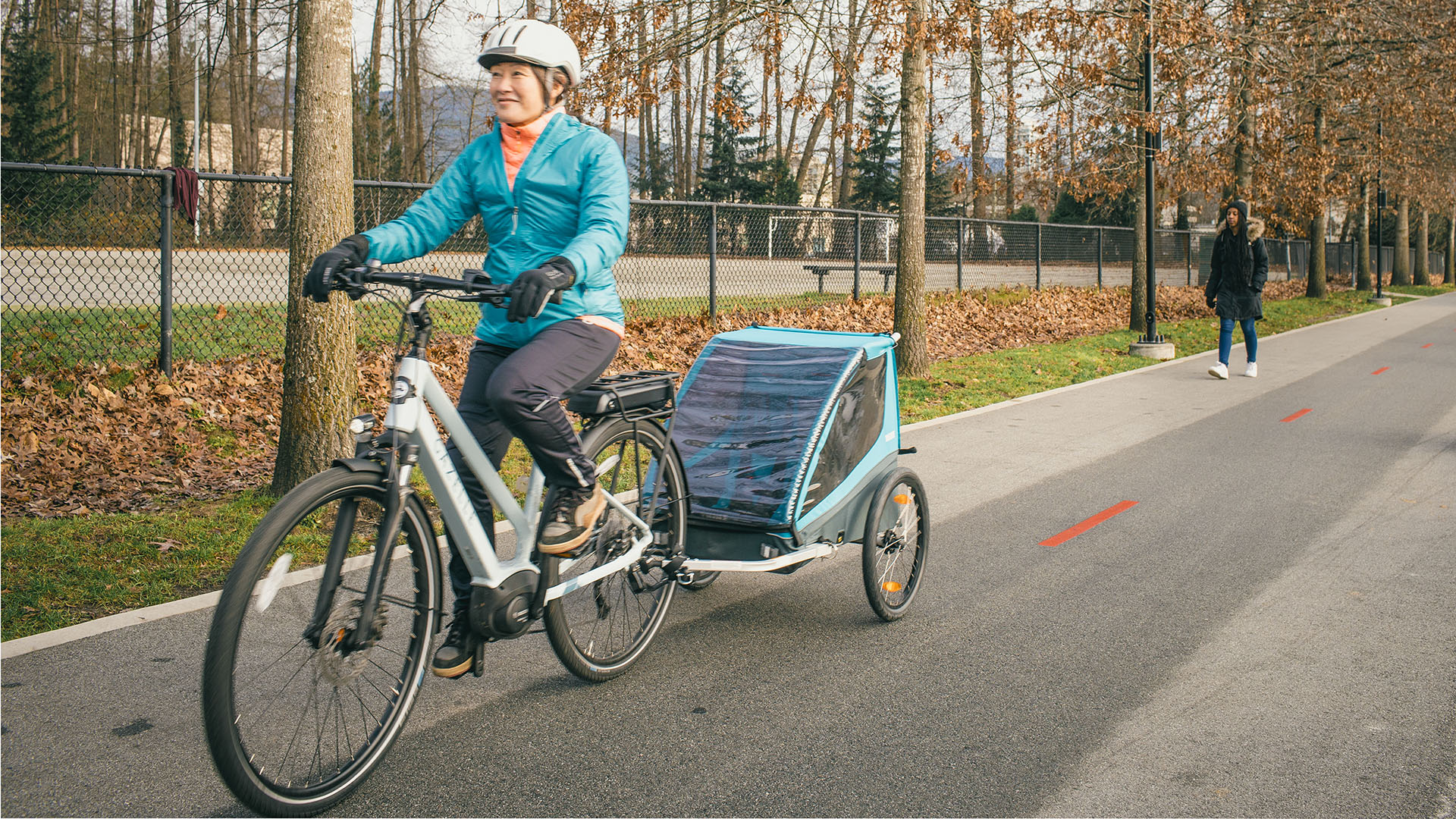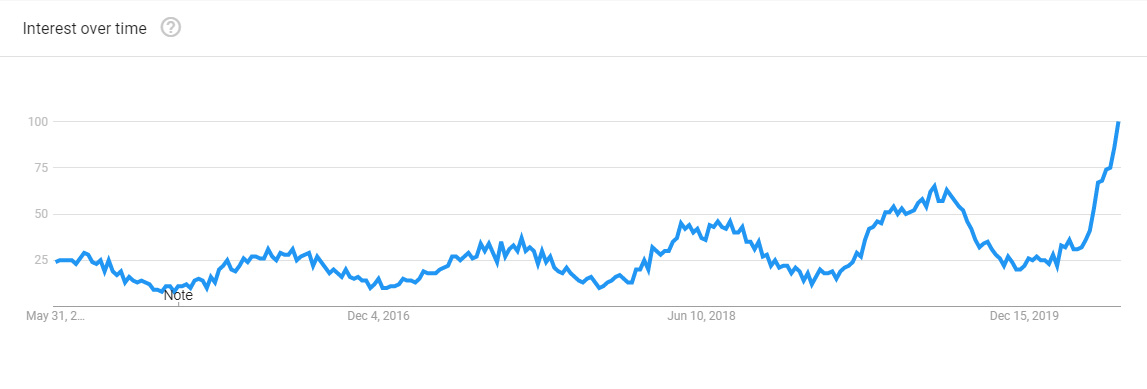What you need to know about buying an e-bike
What you need to know about buying an e-bike

Electric bikes, or e-bikes, have never been more popular than they are now! And interest in e-bikes is booming and for good reason.
More people of different backgrounds, ages, and abilities are finding that e-bikes are helping them stay mobile. Whether that’s seniors or people who find conventional biking difficult or impossible or others who just like the technology and don’t mind a little help getting up that last hill.
E-bikes are fun to ride, help to erase hills in our hilly region, and can extend the range that the average rider would have considered. Not to mention they’re good for hauling stuff!
The technology has improved by leaps and bounds, improving the quality of manufacturing and bringing the price of entry-level e-bikes down to around $2,000 — about one-quarter the annual cost of owning a car.
The diversity of options has rapidly increased too! You’ll find electric options for nearly every flavour of bike – commuter, beach cruiser, folding, and cargo bike.

What are the electric bike trends?
Watch this video to find out how the technology has evolved and what some of the hottest trends are.
What are some of the things you’ll need to keep in mind when you buy an e-bike?
Motor type: the biggest decision you’ll have to make is whether to purchase an e-bike with a hub motor or a mid-drive (or crank) motor. Hub motors sit in the middle of your front or rear wheel. Mid-drive motors are housed between your pedals on the frame of your bike. Which is better is subject to an ongoing debate as both motor types have distinct pros and cons. To learn more, check out this video by Blue Monkey Bicycles or these motor guides from Bicycling.com, Canberra Electric Bicycles, or Electric Bike Report.
Range: how far your battery will last depends on a number of variables, not the least of which are the specs of your e-bike. If you’re hauling cement blocks on a heavy cargo bike, uphill, against the wind, on gravel, in a rainstorm, your battery isn’t likely to last very long. And are you even pedaling? Many e-bikes come with throttle assist, which means no pedaling, but will drain your battery in a flash. To learn more about what affects e-bike range, check out this article by Really Good Ebikes or try your hand at Bosch’s slick range calculator for its mid-drive motors.
Weight: e-bikes come in a diversity of options, with some just a bit heavier than a conventional bike, and others weighing significantly more. When choosing an e-bike, it’s important to consider weight not only for riding but also for other transport options. If you’re going to use a TransLink bus bike rack, keep in mind there is a 25 kg (55 lb) weight limit – and the battery should be removed. Other carriers also have weight and battery restrictions, including many common bike racks for automobiles, that you’ll want to keep in mind.
With the higher sticker price of e-bikes (hint, check your HUB member benefits for discounts to save a few bucks), always ensure you have access to secure storage. Buy the best lock you can afford (see lock reviews at bikeradar, GearLab, and Wirecutter), and register your bike for free at 529 Garage. Importantly, insurance options for e-bikes are available.
Just get out and try a ride! While buying an e-bike can seem complicated at first with all the technical options, you’ll get a feel for what works through test rides. Just have a clear understanding of how you’ll use the bike, what trade-off you’re willing to make and you’ll be zipping up hills in no time.
Can I convert my conventional bike to electric?
Yes, you can! Two local, popular vendors for conversion kits include EbikeBC and Grin Technologies. There’s also many more vendors online and an extensive DIY community. Just keep in mind that electric bike parts are often expensive and proprietary. Warranty, service, and repair should be top of mind for any purchase – and that goes for buying a used e-bike too.
More resources
Reviews: Electric Bike Review has in-depth guides and videos. Bicycling.com and BikeRadar also offer reviews on a variety of e-bikes.
Buying guides: REI has all the basics on how to choose an electric bike. And electrek’s guide is worth checking out since it’s aimed at first-time purchasers.
Where can I buy an electric bike in Metro Vancouver? Many of your favourite bike retailers will offer electric options alongside conventional models, but there are also retailers that specialize in electric bicycles:
- Cit-E-Cycles has locations in Vancouver, North Vancouver, Surrey, and Langley
- Motorino and Rad Power Bikes have shops in Vancouver






This article misses probably the biggest consideration you need to make when considering and ebike. That is the type of pedal assist. One is speed assist where assist is applied based on if you are peddalinng. Maximum assist for that levels is applied if you are peddalinng. There is an approximate 2 second delay to determine if you are pedalling, and then you go straight to max speed for that assist level.
The second type is torque assist. A. Variable amount of assist is applied based on the amount of torque you apply to the pedals. The torque is variable and increases if you increase the torque on the pedals. The assist is immediate with no delay.
Speed works well for commuter and torque for off road trails. If you anticipate doing off road, speed will not work week because of the delay and nonvaraible application of assist. Torque will works equally well for both.
Make sure you decide how you plan on using the bike and pick the type of assist that allows you to do it!
The use of the E-bike for transportation has significantly risen over the years. The introduction of Best electric bikes solves most of the problems around traditional bikes. If you ever tried an E-bike before, you can tell how it feels. Amazing right? The ease of use and comfort that come with an E-bike is unimaginable.
This post is from 2020. Things have changed. Buy your bike from a bike store. Why is translink promoting one business over another?
Nice Blog! if you don’t mind visit now :-https://rokkelectricbike.com/